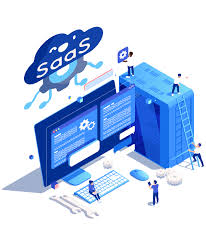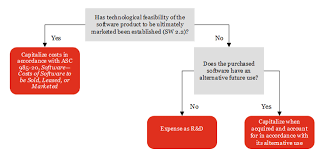Exploring Google’s Cutting-Edge Cloud Computing Services
The Power of Google Cloud Computing Services
Google Cloud Computing Services have revolutionized the way businesses operate in the digital age. With its cutting-edge technology and innovative solutions, Google has established itself as a leader in the cloud computing industry. Let’s explore some of the key features and benefits of Google Cloud services.
Scalability and Flexibility
One of the major advantages of Google Cloud is its scalability. Businesses can easily scale their infrastructure up or down based on their needs, allowing for flexibility and cost-efficiency. Whether you are a small startup or a large enterprise, Google Cloud offers solutions that can adapt to your requirements.
Security and Compliance
Security is a top priority for Google, and its cloud services are designed with robust security measures to protect data and applications. With advanced encryption, access control, and monitoring tools, Google Cloud ensures that your sensitive information remains safe and secure. Additionally, Google Cloud is compliant with various industry standards and regulations, giving businesses peace of mind when it comes to data protection.
Performance and Reliability
Google’s global network infrastructure provides high performance and reliability for cloud services. With data centers located around the world, Google Cloud offers low latency and high availability, ensuring that your applications run smoothly without interruptions. This level of performance is crucial for businesses that rely on fast and consistent access to their data and resources.
Innovative Solutions
Google is known for its innovation, and this extends to its cloud computing services. From machine learning tools to big data analytics platforms, Google Cloud offers a wide range of cutting-edge solutions that help businesses drive growth and innovation. By leveraging these advanced technologies, businesses can gain valuable insights, improve efficiency, and stay ahead of the competition.
Conclusion
In conclusion, Google Cloud Computing Services provide businesses with a powerful platform to enhance their operations, improve security, increase scalability, and drive innovation. With its comprehensive suite of services and industry-leading technology, Google Cloud is a trusted partner for businesses looking to thrive in the digital landscape.
Whether you are looking to migrate your existing infrastructure to the cloud or develop new applications using cloud-native technologies, Google Cloud has the tools and expertise to support your journey towards digital transformation.
Top 8 Benefits of Google Cloud Computing: Scalability, Security, and More
- Scalability for easily adjusting resources based on demand
- Robust security measures to protect data and applications
- Global network infrastructure for high performance and reliability
- Cost-efficiency by paying only for the resources used
- Innovative solutions like machine learning and big data analytics
- Automatic software updates and maintenance for seamless operation
- Collaboration tools for efficient team communication and productivity
- Flexible storage options to accommodate varying data needs
4 Key Drawbacks of Cloud Computing Services: Downtime, Costs, Security, and Internet Dependency
Scalability for easily adjusting resources based on demand
One of the key advantages of Google Cloud Computing Services is its scalability, allowing businesses to effortlessly adjust resources based on demand. This flexibility enables organizations to efficiently manage fluctuating workloads and optimize resource allocation without the need for significant upfront investments in infrastructure. By leveraging Google Cloud’s scalable solutions, businesses can seamlessly scale up or down to meet changing requirements, ensuring optimal performance and cost-effectiveness in dynamic environments.
Robust security measures to protect data and applications
Google Cloud Computing Services from Google offer robust security measures to safeguard data and applications. With advanced encryption, access control, and monitoring tools, Google ensures that sensitive information remains secure in the cloud. This focus on security provides businesses with peace of mind, knowing that their data is protected against unauthorized access and cyber threats. By leveraging Google’s stringent security protocols, businesses can confidently store and manage their critical data while maintaining compliance with industry standards and regulations.
Global network infrastructure for high performance and reliability
Google Cloud Computing Services from Google offer a remarkable advantage with their global network infrastructure, ensuring high performance and reliability for businesses. With data centers strategically located worldwide, Google Cloud provides low latency and high availability, allowing for seamless access to data and resources. This robust network infrastructure not only enhances the speed and efficiency of operations but also ensures consistent performance, making Google Cloud a trusted choice for businesses seeking reliable cloud computing solutions on a global scale.
Cost-efficiency by paying only for the resources used
One significant advantage of Google Cloud Computing Services is the cost-efficiency it offers through a pay-as-you-go model. Businesses can optimize their expenses by paying only for the resources they actually use, avoiding upfront investments in infrastructure that may go underutilized. This flexible pricing structure allows companies to scale their operations seamlessly while keeping costs in check, making Google Cloud an attractive option for organizations of all sizes looking to maximize their budget allocation and overall efficiency.
Innovative solutions like machine learning and big data analytics
Google Cloud Computing Services from Google offer innovative solutions such as machine learning and big data analytics, empowering businesses to unlock valuable insights and drive informed decision-making. By leveraging these advanced technologies, businesses can analyze vast amounts of data in real-time, identify patterns, trends, and correlations, and make data-driven decisions that lead to improved efficiency and competitiveness. Google’s expertise in machine learning and big data analytics enables businesses to extract actionable intelligence from their data, ultimately helping them stay ahead in today’s rapidly evolving digital landscape.
Automatic software updates and maintenance for seamless operation
Google Cloud Computing Services from Google offer the significant advantage of automatic software updates and maintenance, ensuring seamless operation for businesses. With this feature, businesses can rest assured that their systems are always up-to-date with the latest software versions and security patches without the need for manual intervention. This not only saves time and resources but also helps in maintaining optimal performance and reliability of cloud-based applications and services. Automatic updates and maintenance provided by Google Cloud enable businesses to focus on their core operations while benefiting from a hassle-free and continuously optimized cloud computing environment.
Collaboration tools for efficient team communication and productivity
Google Cloud Computing Services from Google offer powerful collaboration tools that enhance team communication and productivity. With features like real-time document editing, file sharing, video conferencing, and project management tools, Google Cloud enables teams to work together seamlessly regardless of their physical location. These tools promote efficient collaboration, streamline workflows, and boost overall productivity by allowing team members to communicate and collaborate in a centralized and organized manner.
Flexible storage options to accommodate varying data needs
Google Cloud Computing Services from Google offer flexible storage options to accommodate varying data needs. Whether businesses require a small amount of storage for basic data or extensive storage for large-scale applications, Google Cloud provides scalable solutions that can be easily adjusted based on specific requirements. This flexibility allows businesses to optimize their storage resources efficiently, ensuring that they only pay for the storage they use without being limited by fixed capacities. With Google Cloud’s flexible storage options, businesses can seamlessly adapt to changing data needs and scale their storage capacity as their business grows.
Potential for downtime
One significant drawback of Google Cloud Computing Services is the potential for downtime. Just like any cloud service, Google’s infrastructure may experience interruptions, leading to operational disruptions and decreased productivity for businesses relying on these services. Downtime can result in loss of access to critical data and applications, causing inconvenience and potential financial losses for users. It is essential for businesses to have contingency plans in place to mitigate the impact of downtime and ensure continuity of operations during such instances.
Costs can add up
One significant drawback of using Google Cloud computing services is the potential for costs to add up quickly. While the scalability and flexibility of cloud services are beneficial, businesses need to be cautious as expenses can accumulate over time. This becomes particularly problematic when usage surpasses initial estimates or requirements, leading to unexpected charges that may strain the budget. It is crucial for organizations to closely monitor their usage and optimize resource allocation to prevent cost overruns and ensure that cloud computing remains a cost-effective solution for their operations.
Security concerns
Security concerns are a significant con of cloud computing services from Google. Despite implementing robust security measures, there is always a lingering risk of data breaches or cyber attacks when storing sensitive information in the cloud. This vulnerability can be a cause for concern for businesses and individuals who rely on cloud services to store their confidential data, as even the most advanced security protocols may not always guarantee complete protection against malicious threats. It is essential for users to remain vigilant and implement additional security measures to mitigate the potential risks associated with storing sensitive information in the cloud.
Dependency on internet connectivity
One significant drawback of using Google Cloud services is the dependency on internet connectivity. Since Google Cloud relies on internet access to function, any disruptions in network connectivity can potentially impede users’ ability to access their data and applications. This reliance on a stable internet connection means that businesses and individuals may face challenges in accessing critical resources during periods of network outages or slowdowns, highlighting the importance of having reliable internet infrastructure when utilizing cloud computing services from Google.






